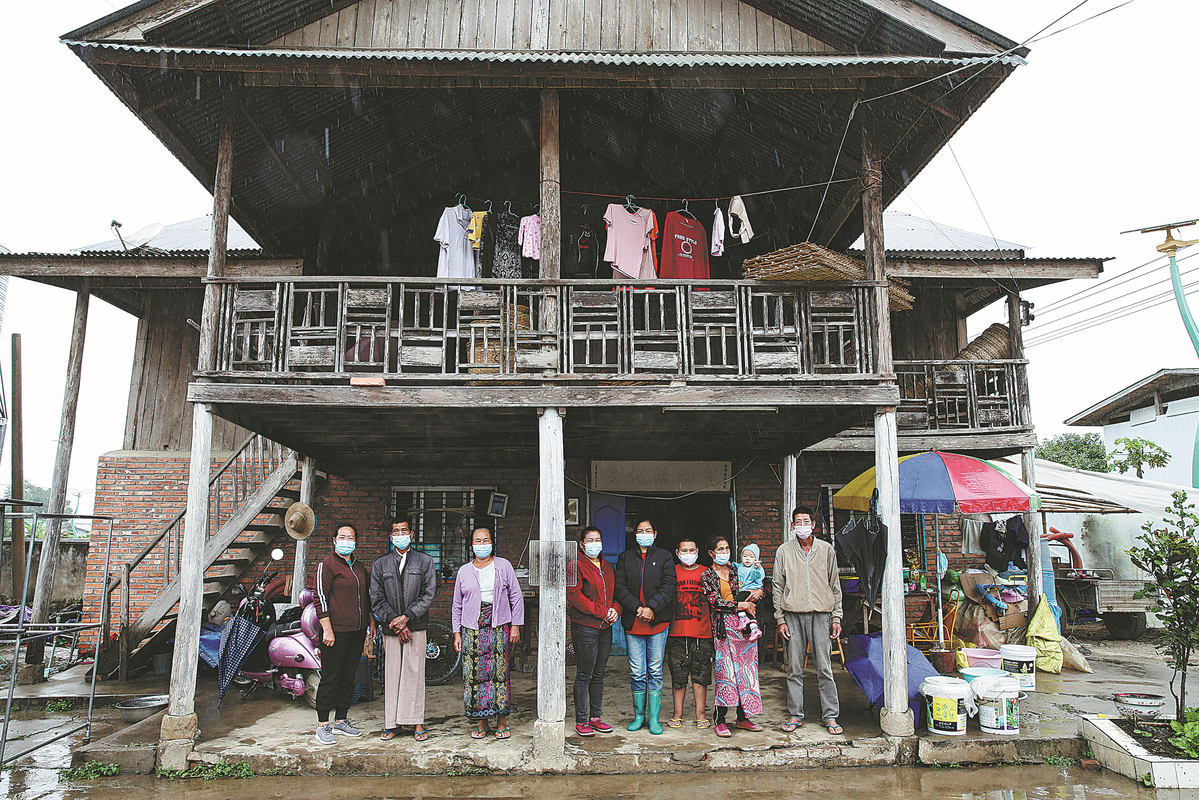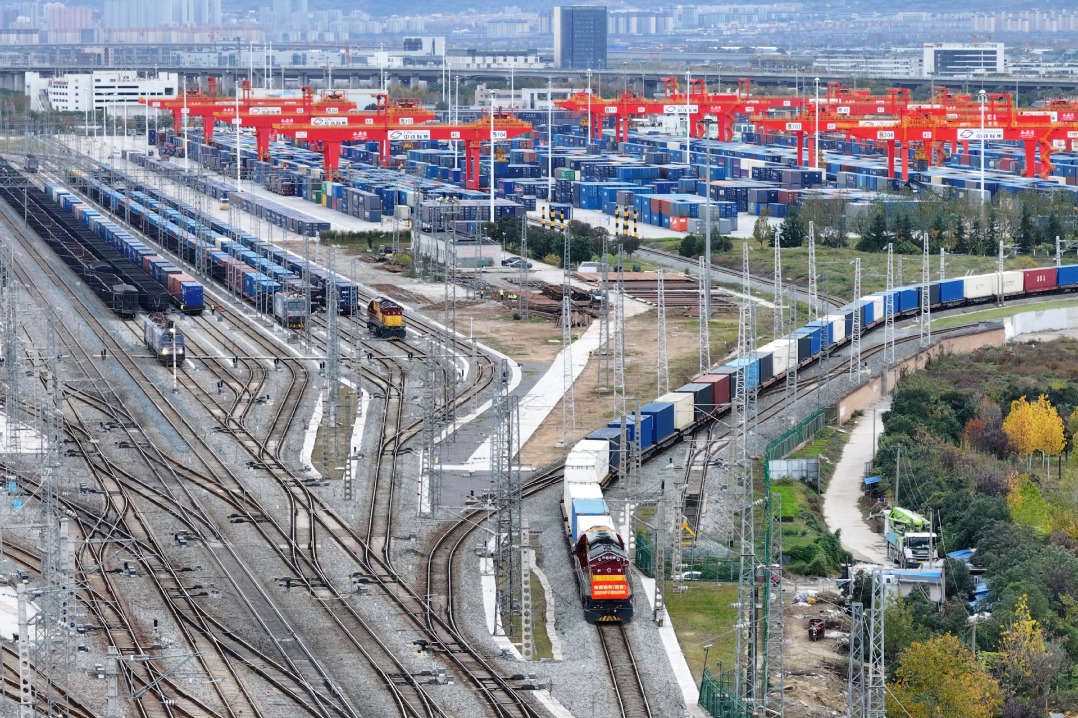Vigilant volunteers help combat virus






Compensation paid
The Ruili government is allocating residents relocated due to virus control measures a subsidy of 600 yuan ($94) per month. In addition, for every mu (0.67 hectares) of cropland in buffer zones, an annual subsidy ranging from 1,000 to 2,000 yuan is being provided to farmers to compensate their losses.
Shang Labian, mayor of Ruili, said that as of Nov 16, more than 68 million yuan had been awarded to eligible villagers. Also head of the provincial-level CDC, Shang said the designation of buffer zones and formulation of a three-tier system to regulate the movement of local residents have been discussed thoroughly by experts and are regularly adjusted to match the latest situation regarding the pandemic.
Regular testing is another key measure being used to stall the virus' spread.
Official data show that it takes an average of 3.8 days to halt a new chain of virus transmission in Ruili, and some 74 percent of confirmed cases have been isolated and treated before exhibiting symptoms.
Song said: "The most effective way to detect new infections is testing. Without prompt nucleic acid tests, we risk missing new cases, and seeing large-scale transmission across society, which will result in even heavier losses."
Liu Bang, director of the CDC in Ruili, said it can now process 21,000 vials of samples a day, up from 720 vials early last year.
Thanks to additional capacity offered by other institutions and public testing facilities, the city can handle 75,000 sample vials daily, he said.
Liu said a smartphone app also plays a key role in speeding up sample-taking. The app documents residents' personal details and their testing history, replacing the less efficient method of writing down information by hand.
"After the first case of the highly contagious Delta variant was recorded in Ruili in early July, we further upgraded and streamlined the entire procedure from sample collection to transferring and testing, in order to be increasingly faster," he said.
The city, with a population of 280,000, has launched a regular testing system. Key groups in border villages, along with workers at quarantine sites, should be tested every three days, market traders every week, and foreign residents every two weeks. A citywide testing campaign is to be staged every month.
Input from local volunteers to help with swift and smooth testing programs is vital.
Li Shi, 36, who lives in Nanmen village, Mengmao county, became a part-time community worker in April. She ensures that the 43 people in the grid, or area she is responsible for, take tests for COVID-19 and are vaccinated promptly.
"The latest testing campaign went very well," she said happily as she tapped an app on her phone and noted that all residents in her grid had given samples as scheduled on Nov 17.
"If an elderly resident feels ill or is unable to walk to the testing site, his or her family can call or message us the night before, and I will get on a tricycle with a health worker to offer door-to-door testing," Li said.




















